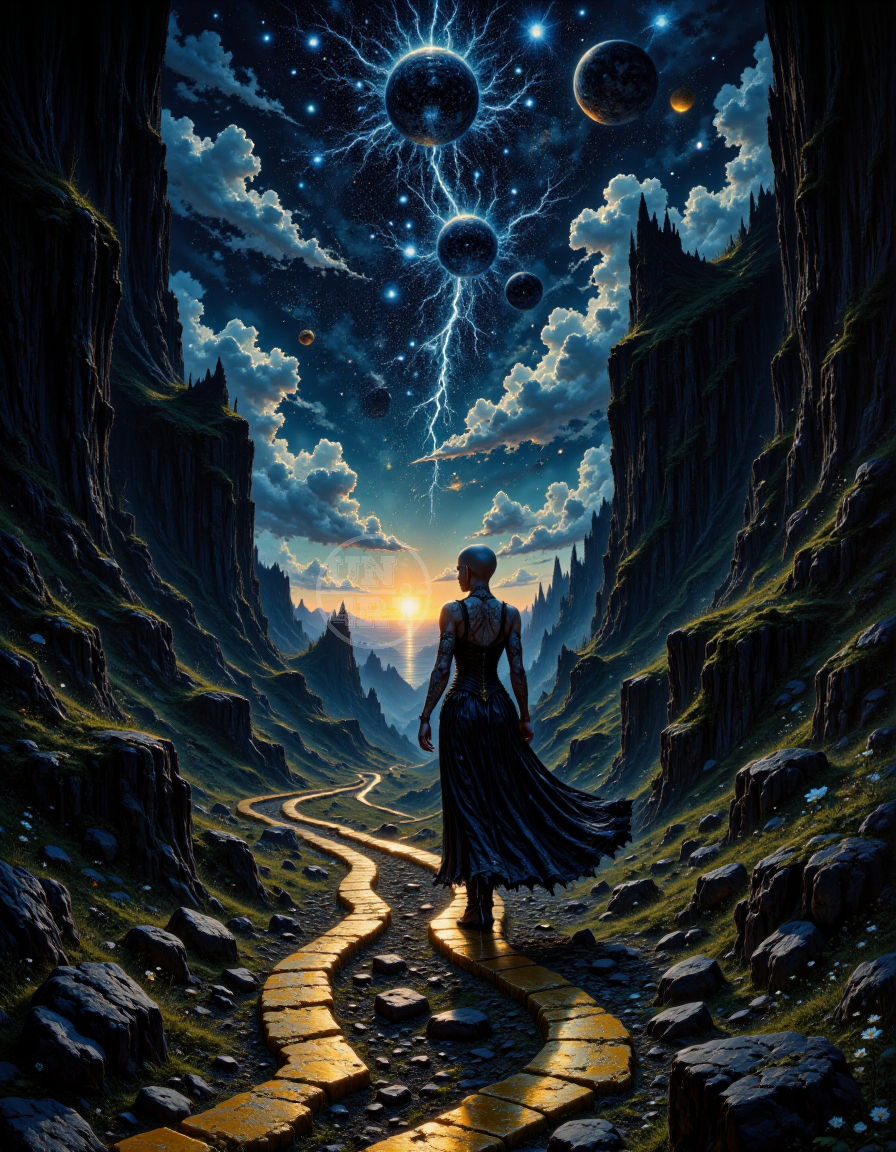Ignorance is not bliss!
- UN4RTificial

- Sep 20, 2025
- 6 min read
If there is one popular saying that persists, it is: ‘Ignorance is bliss.’
This phrase sounds like cheap poetry, preaching the idea that the less we know, the less we suffer.
But does this idea, as sweet as chocolate made from hydrogenated fat, really hold up outside the realm of shallow self-help?
For if ignorance were indeed a blessing, humanity would not have to live amid wars, fanaticism, corrupt politicians, and influencers who sell miracles...
All these examples only thrive because there are too many people who prefer not to know and who do not make a point of wanting to know...
Generally, the same people who use this saying, repeating it like a life mantra, do not know that ignorance is not a state of innocence, but rather a convenient choice.
What is ignorance?

Ignorance does not only mean “not knowing”, it also means pretending not to want to know.
This expression dates back to the ideas of the English poet Thomas Gray, who wrote in 1742:
“Where ignorance is bliss, it is folly to be wise.”
It is interesting to note that Mr Gray's phrase has come to be used as an excuse for living in existential ‘airplane mode’.
To a certain extent, it may even act as an anaesthetic, but it will never act as a cure.
But, after all, why is ignorance not a blessing?
In order to provide more context to the subject, let us cite some teachings that have spanned the centuries and still resonate today.
According to Socrates, the man who baffled the Athenians more than two thousand years ago, true wisdom lay in recognising one's own ignorance.
It is important to note that he was not advocating ignorance as a lifestyle or virtue, but rather pointing out that the arrogance behind ‘we know everything’ is much more dangerous than admitting that we are ignorant.
Plato, his disciple, reinforced this idea in his ‘Allegory of the Cave,’ in which he metaphorically said that human beings were chained inside a cave, where they only observed shadows projected on a wall, believing them to be reality.
As the centuries progressed, Nietzsche emerged, the one who decided to kick conformity in the face. For him, living in ignorance is not a blessing but a great act of cowardice. He believed that facing knowledge, even if painful, is a condition for creating meaning and affirming oneself in the truth of one's own existence.
When we observe the current objective reality, we realise that in the midst of the ‘information age,’ we are facing a great paradox. And this is:
We have never had so much access to knowledge, and yet ignorance seems to reign supreme.
The comfort of not knowing
I have heard people defend, even if implicitly, the pleasures of an alienated life.

Which I found, to a certain extent, understandable. After all, why seek knowledge about yourself, about your own emotional triggers, question your own limiting beliefs, develop yourself so much and no longer be satisfied with empty promises and absolutisms disguised as ‘truth’...?
It is much better to lie in the shade of ignorance, because ‘knowing too much’ can cause anxiety – even though we know that understanding the causes of our own anxiety makes us more likely to alleviate it in our lives.
In these discourses, ignorance always functions as a cheap painkiller that does not cure the pain, but only disguises and numbs it. These are mere vain attempts, as if we wanted to cure an open fracture with a band-aid.
Our brains love shortcuts. We prefer to hold onto comfortable beliefs (even if they are illusory) rather than seek deeper knowledge.
The ignorant, therefore, may not have to carry the burden of knowledge, but they may pay dearly for it. For mass ignorance is fuel for the rise of opportunistic leaders. And when this rise is mixed with blind faith, democracy perishes in the face of a society incapable of questioning its own foundations.
Ignorance and Power
Human ignorance is not merely a personal and singular state; it is, and always has been, a political tool.

Uninformed people are easier to manipulate and control. The Roman Empire already knew this, which is why it offered its policy of “bread and circuses”.
Authoritarian governments, dogmatic religions and even big brands and corporations feed daily on collective ignorance.
The less we question, the more we accept everything meekly and without resistance. This works like a silent pact, in which we surrender our critical thinking and the systems give us back sweet promises wrapped in motivational slogans.
In the book ‘1984’, George Orwell was not just describing a distant future or a non-existent world. He was discussing our tendency towards collective self-deception. Today's ‘Big Brother’ goes by many names, and these convince us that happiness lies in a 12-month interest-free instalment plan.
In other words, ignorance is an extremely lucrative market. It sustains everything from sects to financial conglomerates.
After all, why sell knowledge when alienation yields so much more?
Ignorance as a Choice
Research hurts; not getting things magically, then, is out of the question. Better to continue, then, outsourcing our opinions.
Let the philosophy of ‘leave it alone’ rule us, it's more convenient.
The ‘magic cure’ industry profits, as does the ‘I don't like to read the instructions’ industry.
Ignorance about financial education continues to result in debt and credit card ‘surprises,’ stemming from false illusions of control, sown and harvested from the planting of an ignorant mass.
It is no wonder that knowledge was sold as forbidden for so many years. What we should really learn in schools, we do not learn.
But make no mistake, the habit of ignoring does not remain only in corporate, academic, political, cultural, and religious spheres. We also systematically ignore ourselves, our desires, wants, dreams, and goals.

Ignorance can be a pill, a medicine prescribed and used for temporary relief from the discomfort of the need for knowledge. But sooner or later, the bill arrives, and it does not come in instalments.
Therefore, if ignorance were indeed a blessing, there would be no queues at health centres and public hospitals, we would not have to pay excessive taxes, which often do not yield any return, and we would not be bombarded daily by political advertisements that have been promising “change” for decades.
The height of irony is that precisely those who benefit most from our ignorance are the ones who preach that ‘the people need to educate themselves.’
The funniest thing about all this – or tragic, depending on your sense of humour – is how ignorance disguises itself as ‘personal opinion’. Today, with all the technological possibilities available, anyone with Wi-Fi and 200 characters can feel like an expert on any subject.
The democracy of stupidity is on the rise; everyone talks, but few really think.

Knowledge demands responsibility, lucidity can indeed be bitter, but without it there can be no evolution.
Therefore, ignorance may seem comfortable, but it is nothing more than a more sophisticated form of laziness. An intellectual laziness that comes at a high price.
Knowledge can sometimes be uncomfortable, but it is, and always has been, the only key to living with greater awareness, dignity, and freedom.
I prefer a world full of uncomfortable questions, but conscious ones, to a crowd that is falsely happy and manipulated.
Knowledge sets you free
Finally, ignorance may seem comfortable, but that comfort is false, temporary, insecure, and expensive.
Knowledge may take us out of our comfort zone, but it is the only thing that truly liberates us.
Seeking knowledge about yourself and the world is essential to avoid living like a puppet.
Now, if you are the type who enjoys the pursuit of knowledge as much as I do, leave your comments, criticism, suggestions or even complaints.

Visit our website UN4RT, the free backstage with exclusive content. If you want the access password, just comment below!
But if you identify with and enjoy edgy content like this, support our project!
Just click on the following link and you can treat us to a coffee ‘Buy UN4RT a Coffee’...
By clicking on the link, you will find more free content, membership plans with bonuses and much more...
And remember: you may think you are ignorant, but you can change that whenever you ask yourself what you can improve in your life.
“The illusion crumbles when we question reality” – UN4RT
Sources, references, and inspirations:
Thomas Gray, Ode on a Distant Prospect of Eton College.
Socrates, Apology of Socrates (written by Plato).
Plato, The Republic.
Friedrich Nietzsche, Thus Spoke Zarathustra and Beyond Good and Evil.
George Orwell, 1984.
Daniel Kahneman, Thinking, Fast and Slow.
Zygmunt Bauman, Liquid Modernity and Beyond.
Byung Chul-Han, The Burnout Society.
Arthur Schopenhauer, The World as Will and Representation.




Comments